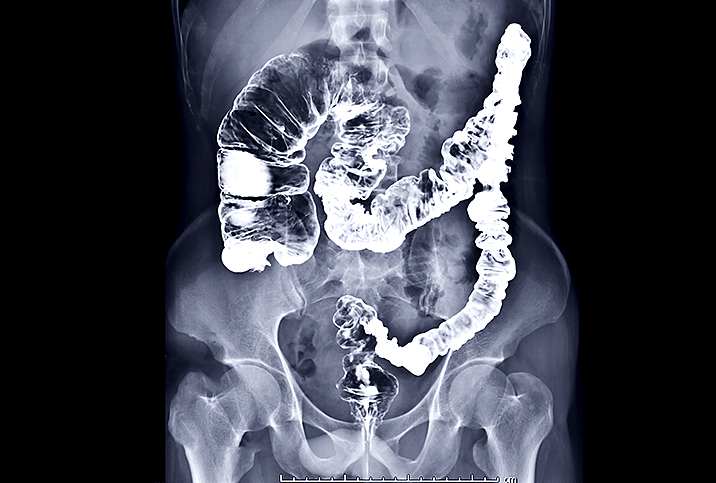10 Reasons to See a Doctor Regularly

Just like oil changes and tune-ups are key to keeping your ride in top shape, regular visits to a healthcare professional are crucial for maintaining good health. But research suggests many men might take better care of their cars than their own bodies, despite the many reasons to see a doctor regularly.
American men are more prone to avoidable death, chronic illness and mental health issues compared with men in 10 other developed nations, according to a study by the Commonwealth Fund, a private health research foundation. In addition, a Cleveland Clinic survey of more than 500 men found only about 60 percent see a doctor for an annual checkup, and around 53 percent say their health isn't something they talk about.
A report by the Centers for Disease Control and Prevention (CDC) found that, excluding pregnancy-related care, men were still 33 percent less likely than women to see the doctor, especially for preventive care.
Why men avoid the doctor
Multiple factors, including apprehensions about exam discomfort and the fear of an unfavorable diagnosis, contribute to men being less likely to see a doctor, according to Michael Blaha, M.D., the director of clinical research for the Johns Hopkins Ciccarone Center for the Prevention of Cardiovascular Disease in Maryland.
"Things as small as busy schedules, inconvenient visit times, offices being out of the way and 'already knowing what I am going to hear' can also contribute to many reasons men deprioritize their health," he said.
The difference in biological milestones might contribute, too, according to Amy Pearlman, M.D., a urologist and the director of men's health at the Carver College of Medicine at University of Iowa Health Care. Whereas many women seek gynecological care at the onset of puberty and routinely see their doctor for needs such as contraceptive management and Pap smears, men don't have an equivalent regimen.
"There are so many things that happen early on in a woman's life that necessitate getting plugged into the medical system," she said. "There aren't any milestones for a man."
Reasons to see the doctor
However, that doesn't mean regular medical checkups are any less important for men, and starting young can head off a variety of issues later in life. If you're one of the 72 percent of men who would rather clean the toilet than see your doctor, here are 10 reasons to visit regularly and start prioritizing your health:
1. Heart health
Heart disease, stroke and vascular disease are more prevalent in men than in women, and men are roughly twice as likely to have a heart attack.
Blaha called cardiovascular disease the biggest health risk for American males, and that cuts across most racial and ethnic groups, accounting for the deaths of about 1 in 4 men. His best advice: Make sure your lifestyle habits are in order and your cholesterol is in check.
"Poor diet, lack of exercise, stress and insufficient sleep really add up over the years. Of course, it's not intentional in most people, but elements like sitting at a desk most days, eating out frequently, lack of knowledge of warning signs or being genetically predisposed contribute to heart health more than many people recognize," Blaha added. "When you combine that with not regularly seeing a doctor and perhaps not knowing your cholesterol numbers, cardiovascular disease can take hold and then progress over time."
2. Cholesterol
"Everyone's risk for high cholesterol increases with age, but particularly after age 45 and then again at age 65," Blaha said.
The risk of cholesterol causing plaque in the arteries also increases with time. He explained this is due primarily to diet, changing metabolism and decreasing activity levels. If your doctor finds you have high cholesterol, they'll likely recommend an individualized treatment plan, including a heart-healthy diet and exercise regimen and, potentially, a prescription statin.
3. Blood pressure
According to the United Kingdom's National Health Service (NHS), high blood pressure, or hypertension, can contribute to a host of issues, including an increased risk of heart disease, heart attack, stroke, aortic aneurysms, kidney disease and vascular dementia. Hypertension can be asymptomatic for years, and many people with the condition don't realize they have it. Seeing your doctor regularly is the best way to keep it in check.
4. Diabetes
According to the CDC, about 1 in 10 people in the United States have diabetes and 1 in 5 don't know they have it. Additionally, about 1 in 3 U.S. adults have prediabetes. Diabetes can impact a person's health in myriad ways, including increasing the risk of heart attack, stroke, blindness and erectile dysfunction (ED). However, it is treatable with a doctor's help.
5. Cancer screening
Cancer is the second-leading cause of death in the United States after heart disease, with prostate, colorectal and testicular cancers among the most prevalent in men. In many cases, early intervention greatly increases the chance of survival.
Prostate cancer affects 1 in 8 men, and the risk increases with age. For this reason, doctors typically screen men between ages 55 and 69. However, men with risk factors, such as low testosterone, being African American or having a family history of the disease, may need testing earlier.
"It's really important for men to understand their family history, especially when it comes to prostate cancer; knowing the history in their brothers, fathers and uncles and, specifically, at what age were they diagnosed with prostate cancer if they had it," Pearlman said.
Colorectal cancer, which affects about 1 in 23 men, is trending younger among people of all genders. While not the only factor, nutrition likely plays a major part, according to Pearlman.
"We can think of food as medicine; we can think of food as poison," she said. "Nutrition is super-important. It's important for prostate health, for urinary health, for erectile function. And it all goes back to basic mechanisms. Inflammation is a big thing that's playing a role in heart disease, colorectal cancer, erectile health, everything."
About 8,000 to 10,000 men between their late teens and early 30s develop testicular cancer each year, according to Johns Hopkins Medicine. Pearlman said it can develop later in life, but it's rare. Other than age, risk factors include a family history of the disease and having an undescended testicle.
6. Weight management
About 43 percent of men in the U.S. are obese, and 34.1 percent are overweight, according to the National Institute of Diabetes and Digestive and Kidney Diseases. Excess body fat can increase the risk of several conditions, including heart disease, type 2 diabetes, stroke, erectile dysfunction and sleep apnea. Excessive thinness can be problematic, too, and any unexplained weight change could indicate an underlying condition.
7. Sleep apnea
Sleep apnea is one of the most prevalent issues for men, according to Pearlman. They are two to three times more likely than women to develop the condition. Sleep apnea is a sleep disorder in which a person's breathing stops and starts throughout the night. It can disrupt sleep, lead to daytime fatigue and contribute to issues such as high blood pressure, heart attack, stroke, type 2 diabetes and metabolic syndrome.
8. Mental health
About 6 million men in the U.S. are affected by depression each year; about three-quarters of people who die by suicide are men, and men are three times more likely to become dependent on alcohol. Millions more experience anxiety, post-traumatic stress, chronic stress and other serious mental health issues, all of which can substantially affect a person's overall well-being and quality of life. Even if a general practitioner cannot provide specialized mental healthcare, they can help you get the support you need.
9. Sexual health
Improving or maintaining sexual health is another one of the important reasons to see a doctor regularly. For sexually active people who are not in monogamous relationships, testing for sexually transmitted infections (STIs) and diseases (STDs) is particularly crucial. A doctor, especially one specializing in men's health, can assist with issues such as low libido and erectile dysfunction, both of which are extremely common and highly treatable.
10. Other health issues
An annual checkup is an opportunity to talk to your doctor about any other problems you're experiencing, from allergies to digestive trouble. Many symptoms arise from underlying conditions that can have serious consequences if they go untreated. Taking charge of your health allows you to be the best version of yourself—for yourself and your loved ones.

















